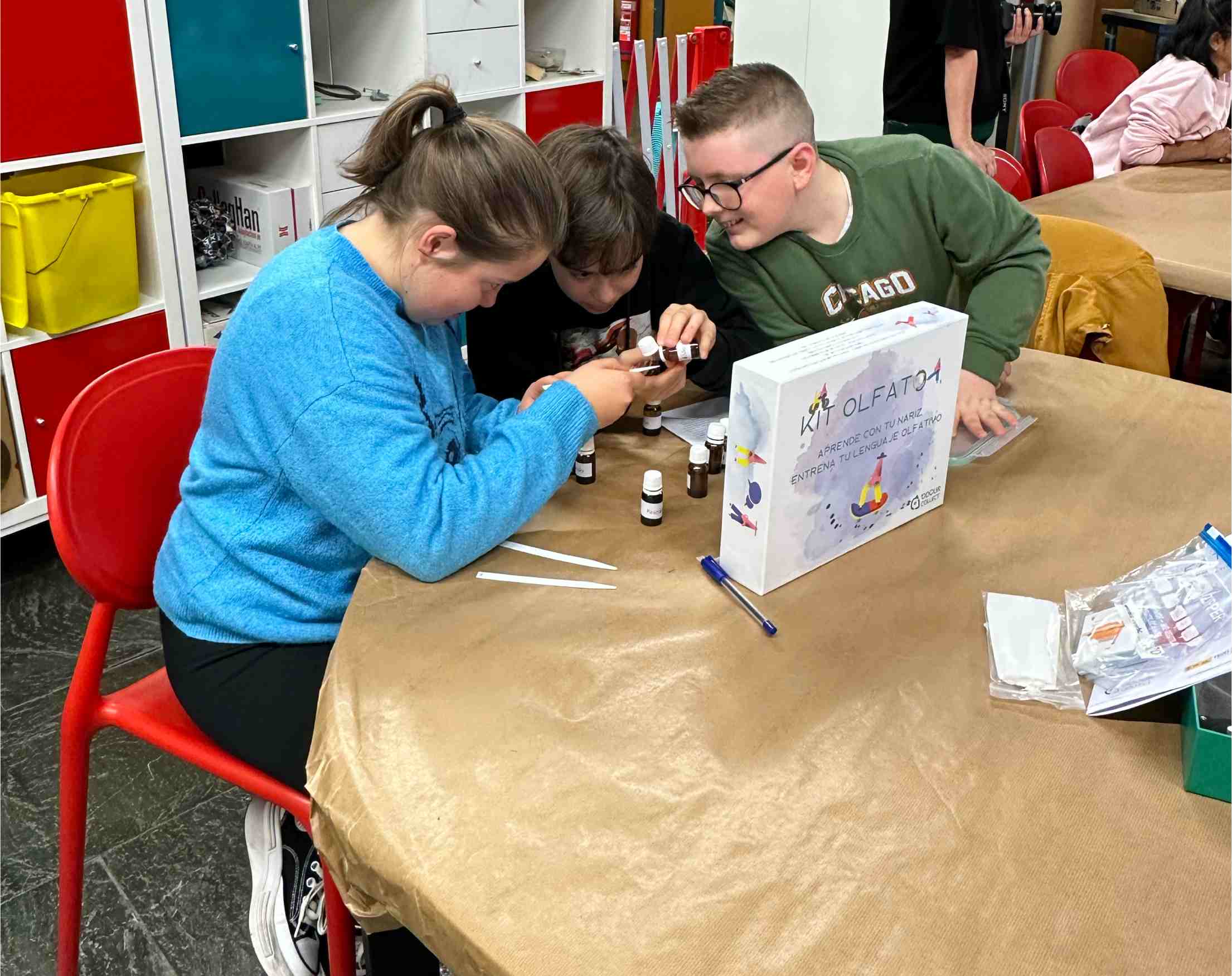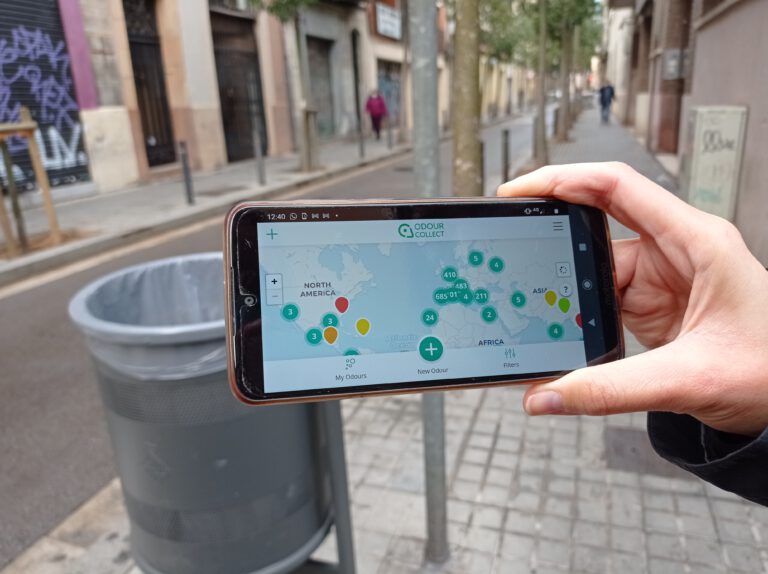OdourCollect, Improving odour pollution management through citizen science
Themes:
Sustainability, Odors
OdourCollect is a citizen science application that puts odour pollution issues on the map, empowering citizens affected by odour issues.
OdourCollect was conceived by Rosa Arias, CEO of Science for Change, after her experience since 2004 in tackling odour pollution problems using traditional methodologies, which do not take into account the real perception of the nuisance by the neighbours who suffer from it. In 2019 Science for Change was born, with the initial idea of exploiting the results of the D-NOSES project through OdourCollect.

Solutions
OdourCollect emerges as a tool based on a bottom-up approach to address odour pollution and empower citizens through citizen science, RRI (Responsible Research and Innovation) tools and co-creation. In this way, they become drivers of change in their communities, while demonstrating the issues they are experiencing and having the opportunity to participate in local decision-making that affects their daily lives.
NEOTEC: OdourCollect, co-design of new technologies for real-time monitoring of odour pollution using citizen science
This project is subsidised by the CDTI, supported by the Ministry of Science and Innovation through the NEOTEC programme. This grant has a duration of two years and aims to finance innovative business projects that require the use of technologies and knowledge developed from research activity.
The project will strengthen the business strategy of the odour unit, which seeks to raise the visibility of the odour pollution problem and put it on the map of public agendas using citizen science. At the technological level, the OdourCollect application will reach a new level of professionalisation oriented to the needs of the clients.
Odour pollution monitoring
Real-time odour mapping through OdourCollect is raising the visibility of odour pollution issues around the world.
In the framework of the European D-NOSES project, the OdourCollect methodology was developed and validated in 10 pilots in Spain, Portugal, Greece, Bulgaria, Italy, Germany, UK, Chile and Uganda to monitor odour pollution and facilitate stakeholder dialogue.
In the framework of the OdourCollect project in communities affected by odour pollution, developed with the collaboration of the Spanish Foundation for Science and Technology – Ministry of Science and Innovation, five localities in Spain are mapping odour pollution through OdourCollect. In the framework of the programme, Science for Change is training local residents to collect valid scientific data on odours and is analysing the data obtained with them.
Citizen Science in schools
In the framework of the OdourCollect to schools
project, developed with the collaboration of the Spanish Foundation for Science and Technology – Ministry of Science and Innovation, we have developed a Didactic Unit to work in the classroom on the world of odours and odour pollution. The educational resource also allows us to put citizen science into practice and discuss current environmental problems in class.
At the same time, as part of the Citizen Science in Schools programme organised by the Citizen Science Office and the Barcelona Education Consortium, students from schools in Barcelona are participating in real scientific research projects through OdourCollect.
Raising awareness
In order to raise awareness of the problem of odour pollution and encourage citizens to monitor odours in their environment, Science for Change participates in a number of awareness-raising activities. The Festa de la Ciència de Barcelona, the Parc de la Ciència de Barcelona or the informative day: as ciencias escríbense en feminino are just some examples.

Results
OdourCollect is expected to raise awareness of odour pollution, increase the number of people participating in citizen science, and report evidence of the new methodology for improving odour pollution management to all stakeholders.
The impact of actions will be continuously analysed and information will be produced in different formats for quadruple helix actors, incorporating citizens, broadcasting industries, local authorities and policy makers, and odour experts.
Related posts
Associates


Did this project catch your eye? Take a look at the following services.
Inclusion of the patient experience in health research
Citizen science, Consultancy, mentoring and training, Health,
GO→
Design and mentoring of citizen science and collaborative research projects
Citizen science, Consultancy, mentoring and training,
GO→
Co-design of sustainability, circular economy, and environmental awareness strategies
Co-creation strategies, Sustainability,
GO→
Co-creation of strategies to address social, environmental, and health challenges workshop
Co-creation strategies, Sustainability,
GO→
Training in Citizen science and collaborative and responsible research
Citizen science, Consultancy, mentoring and training,
GO→
Citizen science to monitor odour pollution
Citizen science, Smells, Sustainability,
GO→
Training, application, and testing of competence frameworks in collaborative research
Citizen science, Consultancy, mentoring and training,
GO→
"A tale of noses” Workshop
Art and science experiences, Citizen science, Smells,
GO→
“C-OLOURS from Alexandria” Workshop
Art and science experiences, Smells,
GO→

